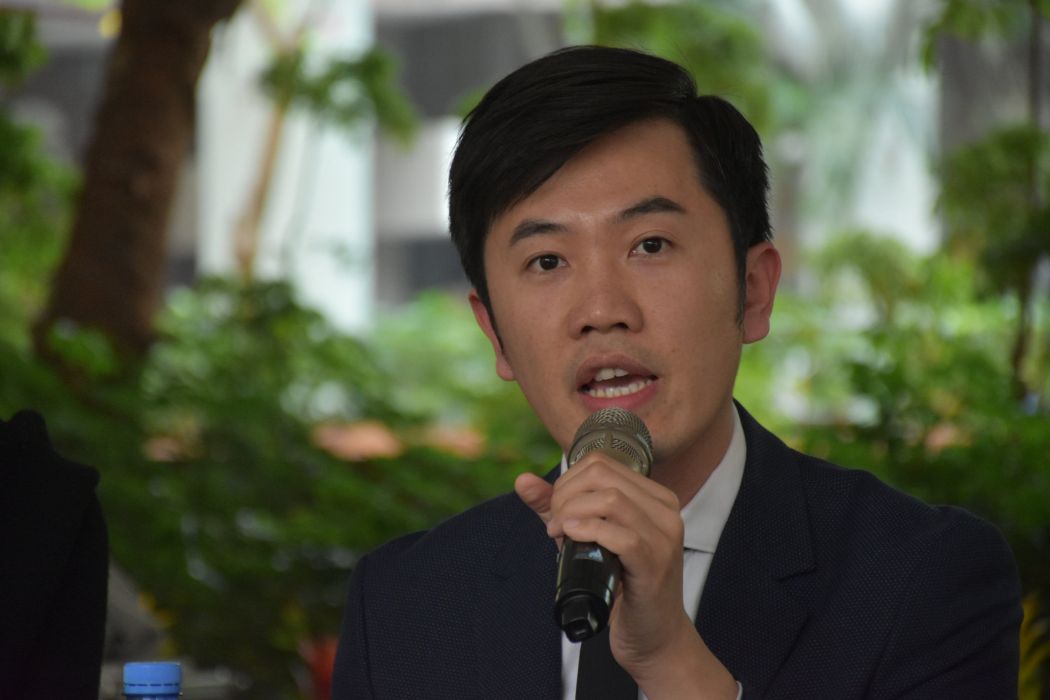Pro-democracy Hong Kong academics say they have been sidelined from city universities for their political views as fears grow that education is increasingly under pressure from Beijing.
Although semi-autonomous Hong Kong enjoys rights unseen on the mainland, including freedom of expression, there are growing concerns those liberties are being squeezed as China’s tolerance for dissent diminishes.

A former member of a top decision-making body at one of the city’s leading universities described the situation for academics as a “bloodless political battleground”.
Students have voiced their support and concern for staff they feel have been targeted over their views.
In recent years they have joined faculty members in protesting against what they believe are political appointments of pro-Beijing management figures at universities.
Several academics who spoke with AFP said they felt their careers or those of their colleagues had been scuppered because of their political stance.
Pro-democracy lawmaker Cheng Chung-tai was dismissed in January this year from Hong Kong Polytechnic University having taught social sciences there for seven years.

He was fired after being prosecuted by the government for turning the China and Hong Kong flags upside down in the legislative chamber as a form of protest against the pro-Beijing camp. He was convicted and fined by the court for “desecrating” the flags.
“The action I took at the Legislative Council has nothing to do with my conduct as a teacher,” he told AFP.
He accuses the university of “kneeling down” to Chinese authorities for commercial gain to safeguard its intake of mainland students, who pay higher fees than local students, and protect donations from pro-Beijing enterprises.
PolyU described Cheng’s actions as “inconsistent with its commitment to quality education and aspiration to embrace internationalisation” in a dismissal letter seen by AFP.
The university said a two-month disciplinary investigation had found Cheng’s behaviour “deviates from the university’s requirements” in a statement to AFP.
Some academics fear university funding is also prone to political manipulation as grants are decided by a government-appointed committee.
Concerns that freedoms on campus are under threat were further exacerbated last year when 10 leading universities penned a joint statement to students warning them not to discuss Hong Kong independence.
President Xi Jinping emphasises territorial integrity as key to a resurgent China and independence talk in the territory is a red flag for Beijing.
‘Chilling effect’
Hong Kong’s education bureau described academic freedom as the “cornerstone of our higher education sector” in a statement to AFP, adding that universities are “independent and autonomous statutory bodies”.
But critics say institutions are becoming increasingly conservative and are concerned that the influence of Beijing’s liaison office in Hong Kong is growing.
Benson Wong, a political science assistant professor at Hong Kong Baptist University, is a veteran pro-democracy campaigner who has argued for the right of students to discuss independence.
Wong received a letter in February, seen by AFP, telling him his contract would not be renewed when it finishes in August after eight years, without giving a reason.
“Universities will not promote academics who are politically active and offensive to the government,” he told AFP.
When asked by AFP whether Wong’s dismissal was in any way connected to his political activism, Baptist University said it could not disclose details of staff members’ reviews and contracts.
“Political factors are not considered when handling staff appointment and performance review,” the university added.
Both the liaison office and the Hong Kong government publicly rebuked pro-democracy activist and law professor Benny Tai earlier this year for discussing Hong Kong independence at a forum in Taiwan.
Tai retains his job at the University of Hong Kong, but faces trial in November and possible imprisonment for his role in the mass Umbrella Movement pro-democracy protests of 2014.
Questions sent by AFP to China’s liaison office about its involvement in Hong Kong universities went unanswered.
High-profile democracy activist Joshua Wong, 21, a former student protest leader, said punishment of politically active academics had led to a “chilling effect” across the university sector.
“Scholars and intellectuals had a lot of room to express their academic analysis and opinions in the past,” Wong told AFP.
“These expulsions are being used as an example to warn other academics they could also be punished.”
